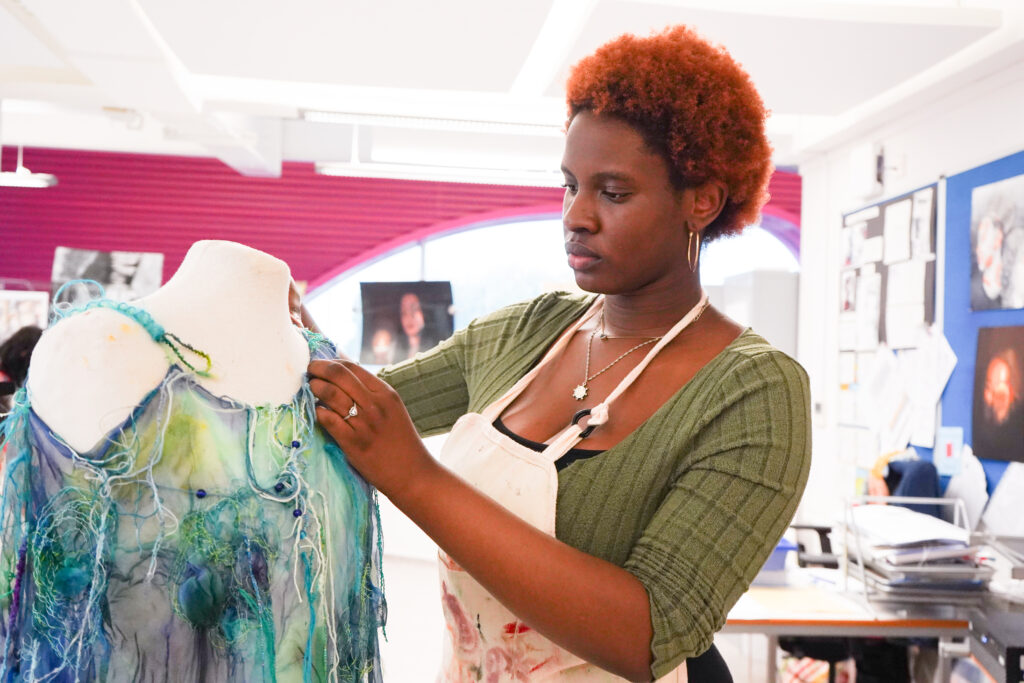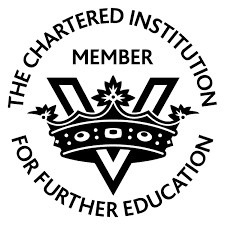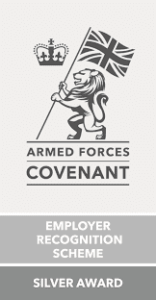Textiles (Fashion Design) is for learners who enjoy exploring traditional and experimental techniques and processes to produce textiles and original garments and accessories. You will cover a wide range of disciplines, and then select one or more to develop your personal creative direction.
Content Overview
You are free to explore virtually any aspect of Textiles and Fashion, including:
- Fashion Design and Illustration
- Experimental Pattern Cutting and Garment Construction
- Hemming and Darting
- Hand Embroidery
- Freehand Machine Embroidery
- Batik
- Shibori
- Feltmaking
- Papermaking
- Monoprinting, Screen and Experimental Printing
- Drawing
- Marbling
- Fashion Photography
- Mixed media experimentation
- Brusho and chemical dye experimentation
- Digital manipulation
- Jewellery making
- Photography experimentation
Any combination of disciplines is permitted and final outcomes reflect your personal choices.
You will also study a diverse range of topics and related designer references to broaden your contextual and theoretical knowledge, and to enhance your practical work.
Possible themes include:
- Journeys
- Recycling
- Gender Stereotypes
- Sea Life
- Architectural Structures
- Internal / External Anatomy
- Portraiture
- Landscapes / cityscapes
- Flora and Fauna
- Heritage
- Feminism
- Culture
Year 1
Unit 1: Personal Creative Enquiry: An Introduction to Textiles and Fashion (Art and Design) 100% coursework based
The first term consists of teacher-led workshops in which you are introduced to and explore a wide range of traditional and experimental textile and fashion techniques and processes. You then select suitable disciplines to further develop and ultimately produce an original final piece (garment, accessories or 2D piece).
Year 2
Unit 1: Personal Investigation (60% weighting)
You decide on a suitable theme and techniques and develop your imagination, artistic and investigative skills, as well as your ability to critique your own work, ultimately producing a final piece (garment/accessories or 2D piece). This component also includes a 1,500-3,000 word illustrated essay about a designer or genre of your choice.
Unit 2: Externally Set Assignment (set by the exam board and 40% weighting)
You are given a broad range of written and visual stimuli, and you select one of the stimuli to use as a starting point to elicit a personal response, again ultimately producing a final piece, during exam conditions (15 hours).
Facilities
- Designated A Level Textiles and Fashion Design studio with full access to equipment and materials
- Freehand and straight stitch sewing machines
- Adobe Suite Editing and Design Programmes
- Access to the Fab Lab: laser cutters, t-shirt printers, vinyl printers, 3D printers
- Designated independent work area and quiet room within classroom space












